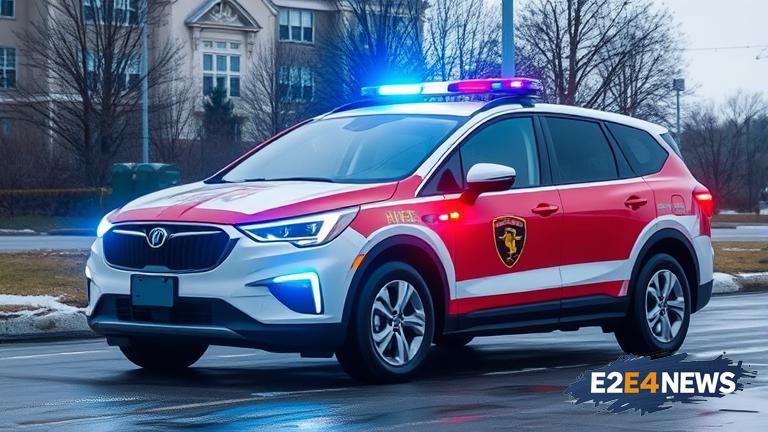In a groundbreaking initiative, Niagara College has introduced a unique training program tailored specifically for first responders to equip them with the knowledge and skills necessary to handle emergencies involving electric vehicles. This innovative program is designed to address the growing presence of electric vehicles on the roads and the distinct challenges they pose in emergency situations. By providing first responders with specialized training, Niagara College aims to enhance their ability to respond safely and effectively to electric vehicle-related incidents. The program covers a wide range of topics, including the fundamentals of electric vehicle technology, safety procedures for responding to electric vehicle accidents, and strategies for mitigating potential hazards. Participants will also engage in hands-on training exercises to practice their skills in a controlled environment. The training is led by experienced instructors who are well-versed in electric vehicle technology and emergency response protocols. Niagara College’s commitment to providing cutting-edge training reflects its dedication to supporting the evolving needs of first responders and contributing to public safety. As the adoption of electric vehicles continues to gain momentum, the importance of such specialized training cannot be overstated. Electric vehicles introduce new variables into emergency response scenarios, such as the risk of electrical shock and the potential for battery fires. First responders must be adequately prepared to navigate these complexities to ensure both their safety and the safety of those they are assisting. The program at Niagara College is a significant step forward in this regard, offering a comprehensive curriculum that addresses the specific challenges associated with electric vehicle emergencies. Furthermore, the training emphasizes the importance of collaboration and communication among first responders, highlighting the need for a coordinated approach to emergency response. By fostering a culture of preparedness and cooperation, Niagara College’s program helps to minimize risks and optimize outcomes in electric vehicle-related emergencies. The initiative has garnered support from various stakeholders, including emergency services organizations and electric vehicle manufacturers, who recognize the value of specialized training in enhancing public safety. As the electric vehicle market expands, the demand for skilled first responders who can handle the unique aspects of these vehicles is expected to increase. Niagara College is at the forefront of this trend, providing a model for other educational institutions and training programs to follow. The college’s expertise in this area is a testament to its commitment to innovation and community service. In addition to the practical benefits of the training, it also underscores the importance of adapting to technological advancements in the automotive industry. By staying ahead of the curve, first responders can better serve their communities and respond to the changing needs of the public. The training program is open to first responders from various disciplines, including fire services, police, and paramedicine, ensuring a unified and effective response to electric vehicle emergencies. Upon completion of the program, participants will receive certification, recognizing their specialized knowledge and skills in this critical area. Niagara College’s pioneering effort in electric vehicle emergency training for first responders sets a new standard for public safety initiatives and demonstrates the institution’s leadership in addressing emerging challenges. The program’s impact is expected to be felt not only locally but also nationally, as it contributes to the development of best practices in electric vehicle emergency response. In conclusion, Niagara College’s specialized training program for first responders is a vital resource that enhances safety, expertise, and community protection in the face of an increasingly electric vehicle-dominated landscape.
